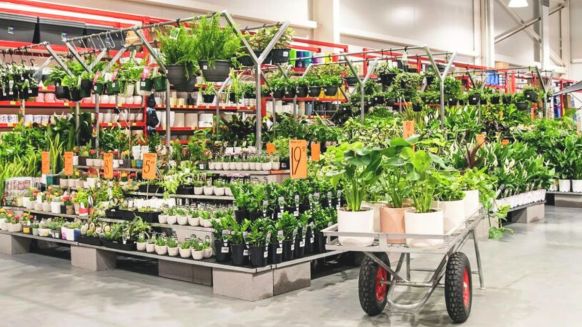Critics lash Bunnings’ ‘free pass’ in supermarket code of conduct review


Bunnings has been forced to defend its dealings with plant growers. Photo: AP
The major review that recommends fining supermarkets potentially billions of dollars for breaching a code of conduct has brushed aside calls for Bunnings to be held to the same standards – despite calls from within the industry.
The interim report from the independent review into the Food and Grocery Code of Conduct, released on Monday, has recommended making the voluntary code mandatory – and that the major supermarkets should face significant fines of up to 10 per cent of their profits for breaches.
But it has also prompted calls to broaden the code to hardware and garden centre giant Bunnings.
The review, led by former Labor minister Craig Emerson, acknowledged concerns about an imbalance of market power in the greenlife sector (plants, flowers and gardening goods) in Bunnings’ favour. It noted that such products were part of the code of conduct.
But it emphasised the code was designed to deal with issues specific to the supermarket industry.
It warned there could be unintended consequences if it was broadened to other retailers.
Instead, the interim report suggested Greenlife Industry Australia (GIA) – one of the biggest advocates for extending the code to Bunnings – should work with the retailer and suppliers to develop their own code of conduct.
Confusion over Bunnings’ verdict
GIA CEO Joanna Cave said although the report demonstrated a good understanding of the power imbalance between growers and retailers, the idea of new voluntary rules for Bunnings was puzzling.
“The report acknowledges that the current supermarket code is ineffective, largely because it is voluntary,” she said.
“We struggle to understand how creating a new voluntary code would improve things for greenlife growers.”
The National Farmers Federation Horticulture Council said Bunnings could be getting away with market power abuse scot-free.
“As a virtual monopoly in the ornamental plant market, Bunnings needs to be included in the code to cover its dealings with plant nurseries,” council chair Jolyon Burnett said.
“The issues faced by this sector are identical to the challenges faced by fruit and vegetable growers.
“It cannot be given a free pass.”
Bunnings defends relationship with growers
GIA alleges Bunnings holds a near-monopoly of the greenlife sector with a 70 per cent market share; Bunnings claims the figure is less than 30 per cent.
Cave previously told The New Daily Bunnings abused its influence by not committing to buying specific volumes of plants, keeping prices down despite rising production costs, and pressuring growers to use costlier freight arrangements and pots.
Bunnings managing director Mike Schneider told The New Daily the characteristics of the hardware giant industry were diverse and “structurally different” to other sectors, including supermarkets.

Bunnings has a strong grip on the plants sector. Photo: Bunnings
He said this diversity would make it “quite difficult to apply” the supermarket code.
“Our relationship with our suppliers is critical to the success of our business, and we actively engage in a number of ways including supplier forums and surveys,” Schneider said.
“We have processes and trading agreements in place to ensure those relationships are fair and transparent and we also have a range of avenues available for suppliers to raise concerns with us, including our anonymous and secure independent reporting service.
“Like any organisation, we don’t get it right every time – but we work incredibly hard to build longstanding, win-win relationships with our suppliers.”
In addition to concerns about Bunnings, the interim report highlighted calls for the code to extend to major wine retailers and beverage manufacturers from Australian Grape and Wine and Granite Belt Growers Association, respectively.
But other stakeholders, such as the Australian Chicken Growers’ Council and the Australian Fresh Produce Alliance, argued that each sector should have its own code of conduct to meet sector-specific needs.








